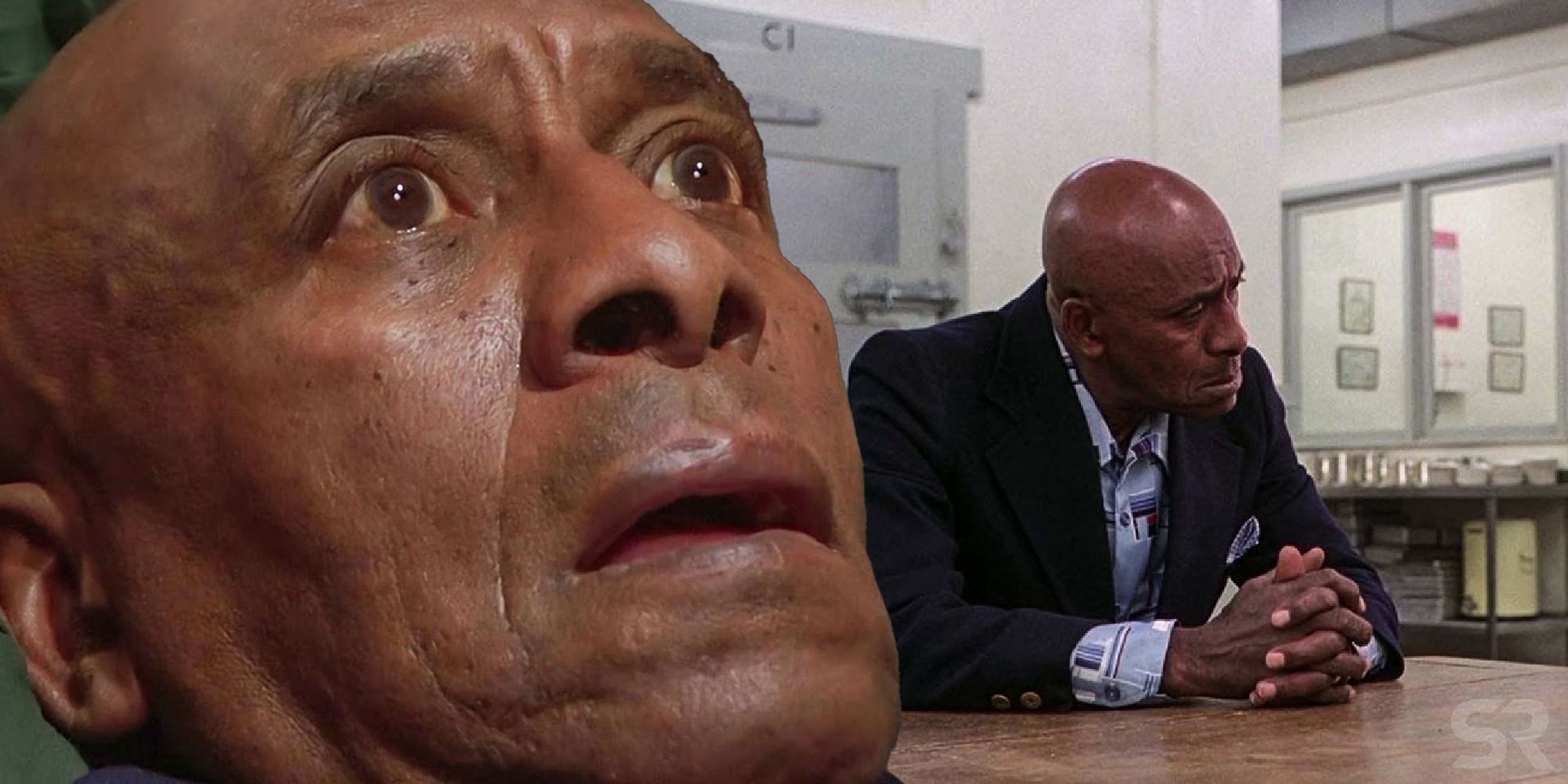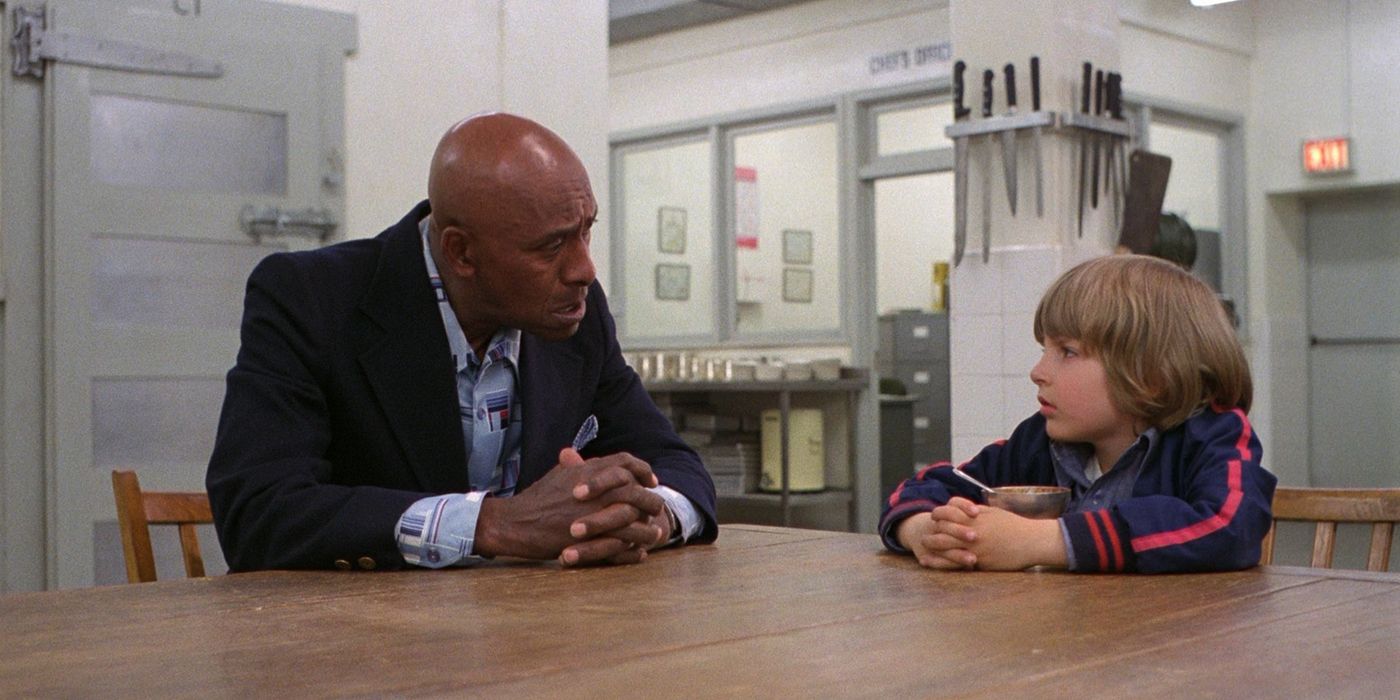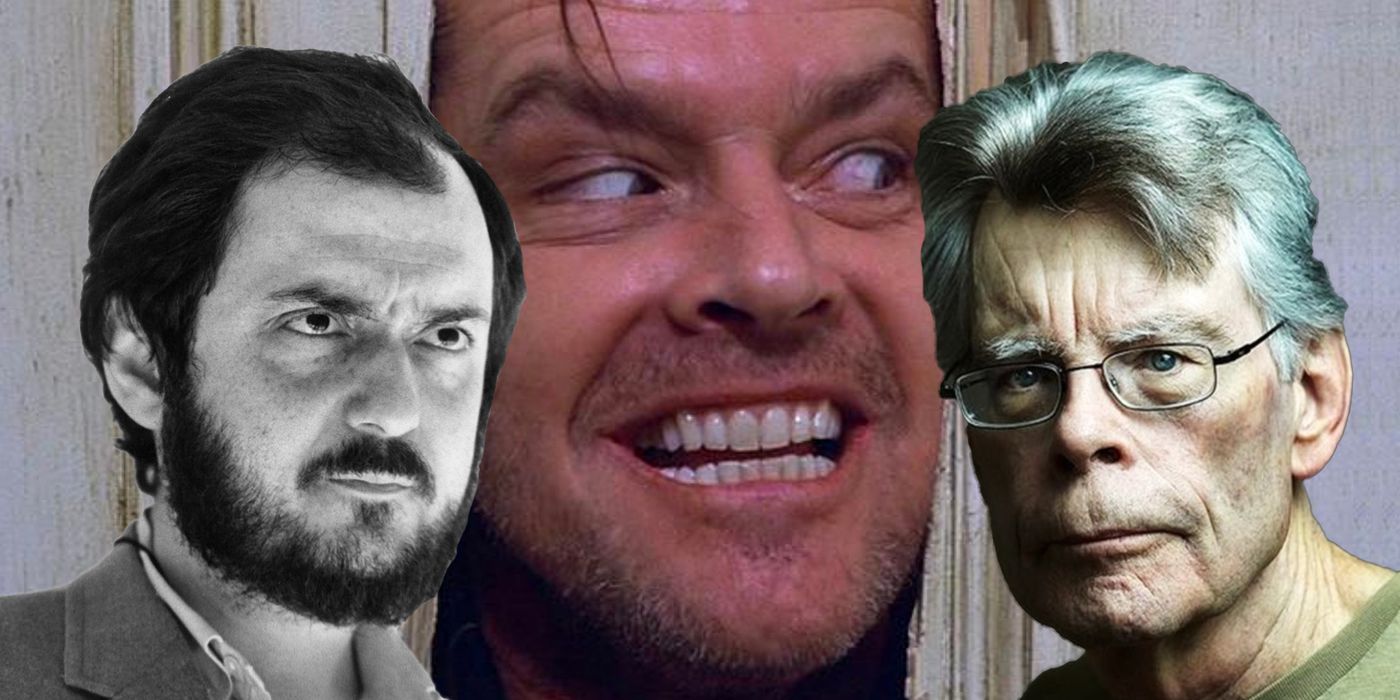Stanley Kubrick's original script for The Shining didn't kill the character of Dick Hallorann, but this eventually changed for the movie's final cut. Dick (Scatman Crothers) works as the head chef at the Overlook Hotel. He also has unique telepathic abilities that he refers to as "the shining". When he meets young Danny Torrance, he helps him understand that he possesses the same powers, and shows him how to utilize those capabilities.
Early in the movie, Dick welcomes the Torrance family—Jack, Wendy, and Danny—to the hotel, showing them around the enormous property while telepathically conversing with Danny. It's a similar case in the original 1977 novel The Shining, written by horror master Stephen King; Dick's main purpose was to introduce the family to their new home and, more importantly, to aid Danny with his "shine".
Toward the end of the novel, as Jack's mental state deteriorates due to the supernatural forces in the hotel, he becomes murderous, eventually going after his wife and son. A terrified Danny sends a psychic distress call to Dick, who is at a winter resort in Florida. Dick rushes back to Colorado to help Wendy and Danny. When he gets there, he is attacked by topiary animals and severely injured by Jack. But in the end, Jack dies and Dick is the hero, saving Danny and Wendy, helping them escape, and even going on to help raise Danny. In Kubrick's adaptation of The Shining, Dick's ending is different. Dick ends up dying a gruesome death when he's attacked by Jack and the animals, leaving Wendy and Danny to fend for themselves. However, this wasn't the original case.
The Shining's Original Script DIDN'T Kill Dick Hallorann
According to The Mary Sue, Crothers had no idea that his character would die on screen; he was familiar with the book and thought Dick was the hero. Plus, originally, Kubrick had a different script.
“I like the film. I just wish that they had kept the original ending," Crothers said. "The strange thing is that even Stanley’s screenplay has Hallorann saving them. In fact, when I first arrived in London … Jack Nicholson introduced me to his friends and said, ‘My man’s the hero of the movie.’ I just don’t understand what happened. Kubrick shot things all kinds of ways, but he never shot a version of the ending like in his script or the book. I still don’t know why Stanley changed the story. I never asked him why he did it. I just wanted to do my job.'”
Kubrick's ultimate decision to change Dick's ending in The Shining certainly frustrated a lot of ardent Stephen King fans, who hate that the director messed with a classic horror story. It could also be seen as particularly upsetting that Kubrick selected the only Black character in the movie to suffer a brutal death—and the only murder in the film—despite having telepathic capabilities that should've forewarned him of danger. In the book, Dick is a warm, father-like figure, and it's notable that the only Black character in the story ends up being the hero.
Why Kubrick Chose To Change Dick's Fate
Cinephiles tend to defend Kubrick's decision to change King's original ending for Dick. A SyFy opinion piece dubs the scene in which Dick is killed "a masterpiece of sound design and visuals". It is indeed quite a scene—Dick, bound in winter gear, walks slowly down the Overlook's enormous, eerie-looking hall, his voice echoing as he calls out for Wendy and Danny. Then, Jack leaps out from behind a pillar and, as Dick yells out in pain, Danny does, too.
But Kubrick didn't only create this scene for its artistic value. Dick's death in The Shining is an extremely sudden twist—especially for viewers who already read the book. Kubrick certainly chose to change up the climax of the movie to up the stakes. In a way, audience members who were familiar with King's book were lulled into a false sense of security. When Dick dies, Wendy and Danny's situation seems utterly hopeless, and viewers sit at the edges of their seats waiting to see how they might possibly escape without Dick's help. While an unexpected change, it effectively served to highlight the peril Wendy and Danny were in, and added to the overall feel of the movie.



